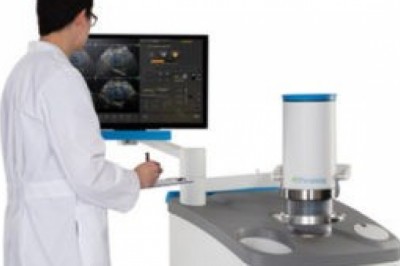views


First and foremost, you must understand that your body does not run by an automated mechanism. Your system's hormonal functions are affected by your food habits, lifestyle, stress, illness or medication.
Here are 5 possible reasons why your period might be late
1. Breastfeeding
This is a common reason for a delayed period among new mothers. After your baby is born, be assured if the fact that your menstruation cycle might not make an appearance for quite a few months. There is nothing to be alarmed about this, as it is biologically normal. This phase is called lactational amenorrhea and disrupts the menstrual cycle for just a few months. Your menstrual cycle will resume when the phase ends.
2. Thyroid dysfunction
It has been clinically observed that many women with delayed periods either have hypothyroidism or hyperthyroidism. The thyroid gland produces hormones that balance bodily functions, but when there is a disruption in the hormone secretion, it disturbs your menstrual cycle leading to a missed period. But the treatment for thyroid dysfunction and its symptoms have improved a lot through medications. So you can consult an endocrinologist and get a blood test to check if thyroid malfunction affects your menstrual cycle.
3. PCOS (Polycystic Ovary Syndrome)
PCOS or Polycystic Ovary Syndrome is a common hormonal imbalance in the body that affects 5-10% of women. Irregular periods, excessive hair growth at unwanted places, presence of multiple cysts on the ovary in pelvic ultrasound diagnosis and infertility. In PCOS, the period might happen every two weeks, one in 3-6 months and in extreme cases, once a year.
4. Perimenopause
Healthy menopause in a woman usually occurs at 45-50 years. But, in many cases, women start experiencing symptoms of menopause as early as 10-15 years in advance. This is known as perimenopause. It's when the frequency of your period gets less often due to a decrease in the estrogen hormone.
5. Significant weight los
Believe it or not, a healthy body weight is responsible for a proper menstruation cycle. However, low body weight due to an eating disorder or extreme exercise in the gym or marathon can affect the way hormones function, stopping ovulation and the cycle. Put on body weight healthy by eating nutritious food and moderate exercise that builds muscles and burns down fat.
Teenage Period: late period under 16 years
Gynecologists have observed that teenagers often complain of irregular and delayed period. They often panic, thinking that it might be some serious physical issue. But a delayed period is a symptom of their growing body and the developing reproductive system. It is completely normal for Teenagers to experience an irregular and delayed period in the first few years of their cycle. For some, it might happen as frequently as two weeks, for others, it may happen once every 3 months. Continue monitoring your period cycle and visit a doctor if you notice any abnormality.
A delayed period does not always mean pregnancy. It is common due to various physical factors. However, you must consult a gynecologist if you notice anything abnormal, like
· Unusually heavy bleeding
· Fever and cold sweats
· Severe pain in the abdomen and pelvic region
· Nausea and vomiting
· Bleeding that lasts more than seven days
· Bleeding even after menopause and not having periods for a year
See a doctor right away for treatment.












